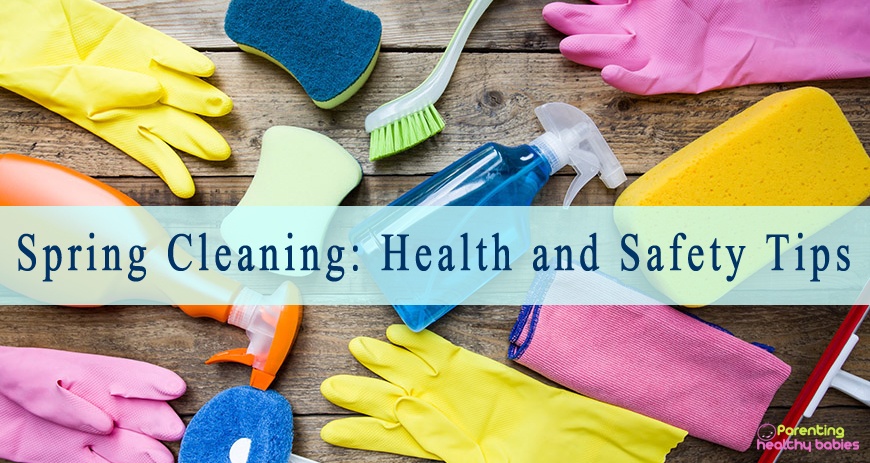Pregnancy is an amazing experience, but it’s also an emotional rollercoaster, and as the due date approaches one of the chief emotions is often fear. New parents almost always worry about whether they will get everything right for their baby, and feel afraid of doing anything wrong. There is so much help and advice available for new moms and dads, you’d think no-one need feel unprepared for when the baby is born, but the amount of information in itself can be overwhelming; plus, there’s the problem of what to decide when advice is conflicting. How do you know that you’ll be a good parent, and what can you do to make sure you enjoy the experience as much as possible?
Things to Know When Expecting Your First Baby
Worry isn’t all bad
The first thing to be aware of is that worry isn’t a completely negative emotion. In fact, if you feel worried about being a new parent, that demonstrates your awareness and commitment to your role and the weight of your responsibility. If you didn’t feel at all concerned about what could happen, you’d be far more likely to make a mistake through over-confidence or lack of consideration, so don’t beat yourself up if you have concerns and doubts. What you don’t want is to be so consumed by your worries that you find it hard to function, and miss out on all the joyous experiences of being a new parent.
Practical worries
The first cause of worry is one that can be dealt with by taking action. For example, worrying about whether you have everything you’ll need for the baby can be resolved by checking what you’ve got against a list to make sure nothing’s been forgotten. There are in fact very few items that can’t be bought when they’re needed or a substitute used, so there’s no need to get too panicked about the possibility that you’ve not got the right size diapers, or that the sterilizer will break down.
Money problems can be a cause of stress for many people, and expecting a baby makes money issues even more of a worry. There’s the added expenditure on baby equipment and supplies, and very likely an effect on the household income as one or both parents taketime off work, reduce their hours, return to work and incur childcare expenses.
Getting into debt at a time like this is unwise, so it’s essential to manage your money well. Rather than racking up expensive credit card bills, for example, you could be better off looking at options for quick loans to cover the major expenses and pay the debt back in manageable installments. You’ll spend less by selecting carefully and having time to price check rather than buying in a rush and being forced to spend more.
The right information
The information overload problem is only going to get worse, as more and more online resources get published and new books are written. Many of the resources you’ll encounter will be commercially motivated, designed to incorporate marketing for baby-related businesses as their primary motivation. That doesn’t necessarily mean the information is of poor quality; in many cases, commercially sponsored materials can be based on sound, current medical evidence.
What you need to look out for is where the information is coming from. Is it written or reviewed by medical experts for example, or based on authoritative sources? Is it updated regularly, and does it refer to independent research? Some commercially dependent resources refer to research papers because it makes their articles sound authoritative, but not all research is of good quality. Many papers are published by researchers whose work is funded by other companies or baby product manufacturers for instance. In theory, there shouldn’t be any bias in favor of the sponsor, but unfortunately it can happen.
You should also be wary of advice given by anyone who has a vested interest in you buying their products. A primary example of this is formula milk manufacturers. Many countries now have laws restricting these companies from promoting formula milk as a replacement for breast milk, but you may still come across promotional materials that are aimed at encouraging moms to choose formula over breast milk. It is of course your choice how you wish to feed your baby and raise them, but make sure it’s an informed choice and not one based on marketing or unreliable information.
Well-meaning advice
As well as all the published resources you can access, you’ll also get masses of advice from other parents – friends and family, even strangers will feel they have a duty to tell you what’s best for you and baby. There’s no harm in listening to advice, and it’s generally well-meant; much of it might be genuinely helpful, too. Don’t feel you have to abide by it all though. You wouldn’t be able to anyway! If one person says babies should be left to cry so they learn to get themselves to sleep, and another says babies should always be comforted when they cry, there’s no way you can appease these opposing views.
What’s important is that you make your own choices. Listen to what people have to say, and if you aren’t sure whose advice to take, find out more by doing some research. You may not find a consensus, and opinions do change over time as well; but by informing yourself you’ll be able to reach a decision you feel comfortable with.
In many cases, what you decide in advance may change when the baby arrives anyway. You might plan to have a strict feeding and sleeping schedule, so you retain a more ordered lifestyle, then discover when the baby is born that you can’t bear to put them down,so you start carrying them with you everywhere you go. Don’t dismiss the power of natural instinct; it may not always be right, but very often it is, so it’s ok to be guided by your feelings – and it’s ok to change your mind, too. Feeling worried and fearful is natural, so don’t be too concerned; it’s a sign you will be a loving, caring parent.













